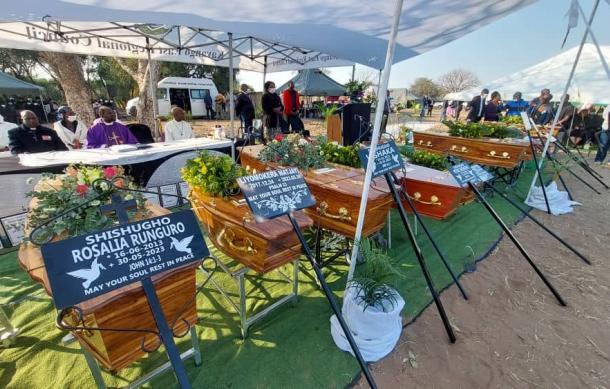
Some children in Windhoek have expressed their frustration about the recent deaths of children at Kayova Village in the Kavango East Region from suspected food poisoning.
Saturday, June 10, was the saddest moment for the Shishungho family and the villagers who were forced to bury their own.
The suspected food poisoning claimed the lives of 14 children between the ages of 16 and two young adults, aged 21 and 33.
They all died in the space of a few days following the consumption of suspected spoiled food, in an incident that sent shock waves through the entire nation.
Children also followed the news of these multiple deaths.
They expressed their sympathy, saying the lives cut short were those of potential future leaders.
Cynthia Likando, a Grade 7 learner at Van Rhyn Primary School, says drastic measures need to be employed to protect young lives.
"They should prepare a soup kitchen for the children, the community leaders somehow failed to do their duties because they waited for something bad to happen. It is not as if I am saying they waited for them to die, but they could see that this household needed assistance, but they just stood there waiting for something bad to happen. I think they learned a lesson; next time they will know how to act in such a situation," Cynthia adds.
Rachel Pandeni, a learner at Jan Mohr Secondary School, says that the government should give due and special attention to the fight against hunger and poverty among children, particularly in remote areas.
"I feel very bad about what happened to these families and that they have lost so many lives. The government should come up with more programmes to educate people on how to live a healthy life. Also, teachers should have come up with more ways to help their students because I personally feel that teachers saw the situation but did not do anything about it, and they just reacted after the lives had been lost."
Child activist Nehoya Andowa says the incident could have been avoided, highlighting that the money spent on the funeral of the 16 could just as well have served to feed the family when they were alive.
"It is heartbreaking. I feel bad because these kids had bright futures, and maybe they were going to be the family's breadwinners, but now their lives have been cut short. So I feel like the government should not wait for such things to happen. They should go around and look at what people are going through. On the other hand, the principal and life skills teachers should approach learners on a daily basis and should not ignore situations. Community leaders should be the ones to take care of their people and report issues to higher officials. This money that was used to bury these children could really save these lives."





